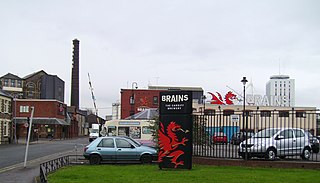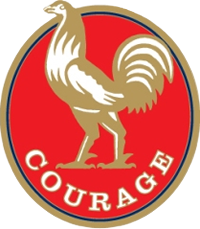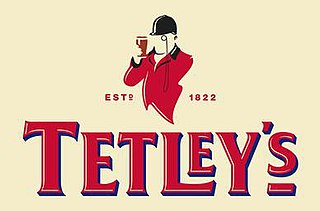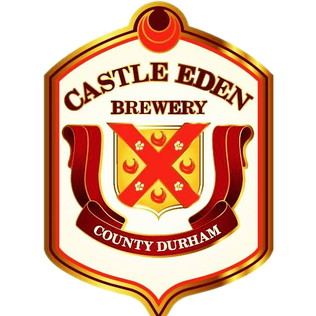 | |
| Industry | Brewing |
|---|---|
| Founded | 1874 |
| Defunct | 1984 |
| Products | Beer |
| Parent | Marston's plc |

Border Breweries (Wrexham) Ltd was a brewery in Wrexham, Wales, between 1874 and 1984.
 | |
| Industry | Brewing |
|---|---|
| Founded | 1874 |
| Defunct | 1984 |
| Products | Beer |
| Parent | Marston's plc |

Border Breweries (Wrexham) Ltd was a brewery in Wrexham, Wales, between 1874 and 1984.
Border Breweries had its roots in a small operation at the Nag's Head public house in Wrexham, which was run by the Rowlands family between 1834 and 1874. It was subsequently acquired by Henry Aspinall - who named it the Wrexham Brewery and expanded it substantially - before being taken over by Arthur Soames, who entrusted his 21-year-old son Frederick with management. Within ten years, Frederick Soames had built up the business into a major producer.

Following the financial impact of the Great Depression, Border was formed by the 1931 merger of the Soames Wrexham Brewery, then in liquidation, the nearby Island Green Brewery (dating from 1856), and the Oswestry firm of Dorsett Owen. [1] Operations were then concentrated at the Soames Brewery site. [2] Along with the Wrexham Lager Brewery, the new firm dominated the brewing industry in the town, which was itself the centre of the industry in North Wales thanks to its supply of suitable spring water.
Border distributed a variety of products during its existence, including Border Mild (a dark mild ale), Exhibition Ale and its generally well-regarded Border Bitter (marketed with slogans such as "Wine of Wales", "Thirst Come Thirst Served", and "Prince of Ales"; the writer and humourist Miles Kington, whose father was the brewery's director, commented that Border had "managed to produce damned good beer but had never come up with a good slogan"). [3] The bitter was described by journalist Richard Boston, writing in 1976, as "reddish in colour, pleasant in flavour, but rather thin". [4] Border Bitter had an Original Gravity of 1034, and used Fuggles, Goldings and Whitbread Golding Variety (WGV) hops, while Border Mild had an OG of 1030. [5] Border also bottled its own minerals. These products were sold in the firm's tied houses located throughout north and mid Wales, Shropshire, and parts of The Potteries.
Border's branding, in its later years, featured a pale blue and white colour scheme, a pseudo-Celtic font, and a stylised red Welsh dragon (a dragon had originally been used by the Island Green Brewery; Soames had used a bridled horse as its logo). The company had a prominent role in local event sponsorship: Wrexham F.C.'s Racecourse Ground, whose land was owned by the brewery, had a "Border Stand" for many years.
As a regional brewery, Border Breweries finally fell victim to the increasing consolidation of the UK brewing industry during the 1980s. In 1984, two larger firms, Burtonwood Brewery and Marston Thompson and Evershed, sought to acquire Border and its 170 tied houses. Border's share price rose 43p to 155p in a day on 15 February, following rumours of a bid, and subsequently rose further to 208p. [6] Marston's, thanks to the influence of Whitbread who owned a minority stake in both companies, eventually succeeded and despite public assurances to the contrary were to close the Border site within six months. They continued to produce Border products for some years under the Marston's name, though this has now ceased. Border Breweries (Wrexham) Ltd. still exists, as UK registered company 00257409, as part of Marston's.
In 1985, some of Border's former staff went on to set up the small-scale Plassey Brewery at Eyton outside Wrexham, which still produces beer using Border recipes in some cases. [7]
The partly listed Border premises in Tuttle Street, Wrexham have been converted into flats, while the adjacent Nag's Head, where the company had its origins, remains open as a pub. The brewery's chimney, a prominent Wrexham landmark, was purchased by the then local Member of Parliament John Marek to save it from demolition.

Mild ale is a type of ale. Modern milds are mostly dark-coloured, with an alcohol by volume (ABV) of 3% to 3.6%, although there are lighter-hued as well as stronger milds, reaching 6% abv and higher. Mild originated in Britain in the 17th century or earlier, and originally meant a young ale, as opposed to a "stale" aged or old ale.

Marston's plc is a British pub and hotel operator. Founded by John Marston in 1834, it is listed on the London Stock Exchange. Marston's disposed of its brewing operations in 2020, selling the assets to a newly formed joint venture with the Carlsberg Group to create the Carlsberg Marston's Brewing Company (CMBC), in which Marston's plc holds a 40% share.

Brown ale is a style of beer with a dark amber or brown colour. The term was first used by London brewers in the late 17th century to describe a lightly hopped ale brewed from 100% brown malt.

Brains is a regional brewery based in Cardiff, Wales. It was founded in 1882 by Samuel Arthur Brain. At its peak, the company controlled more than 250 pubs in South Wales, Mid Wales and the West Country but the brewer sold most of its pub estate in 2022. The company took over Crown Buckley Brewery in Llanelli in 1997 and Hancock's Brewery in 1999. In 2000, Brains moved to the former Hancock's Brewery just south of Cardiff Central railway station. The Old Brewery, in Cardiff city centre, has been developed into a modern bar and restaurant complex.

Boddingtons Brewery was a regional brewery in Manchester, England, which owned pubs throughout the North West. Boddingtons was best known for Boddingtons Bitter (Boddies), a straw-golden, hoppy bitter which was one of the first beers to be packaged in cans containing a widget, giving it a creamy draught-style head.

India pale ale (IPA) is a hoppy beer style within the broader category of pale ale.
Webster's Brewery was a brewery that was founded in 1838 by Samuel Webster and operated at the Fountain Head Brewery in Halifax, West Riding of Yorkshire, England. Webster's Green Label, a light mild, and Yorkshire Bitter gained national distribution after the company was taken over by Watney Mann in 1972. Throughout the 1970s it was known for the advertising slogan: "Drives out the northern thirst".

Beer has been brewed in England for thousands of years. As a beer brewing country, it is known for top fermented cask beer which finishes maturing in the cellar of the pub rather than at the brewery and is served with only natural carbonation.

Beer in Wales can be traced to the 6th century. Since the 2000s, there has been a growing microbrewery industry in Wales.

Vaux Brewery was a major brewer and hotel owner based in Sunderland, England. The company was listed on the London Stock Exchange. It was taken over by Whitbread in 2000.

McMullen's, known locally as Mac's, is a regional brewery founded in 1827 in Hertford, England. The brewery expanded during the second half of the 19th century by purchasing other breweries and their associated pubs. In 1902 it was the second largest brewery in Hertfordshire. The brewery has occupied several different sites in Hertford and moved to its current location in 1891. There have been several breweries on this site and the current one opened in 2006. As of 2021, members of the 6th generation of the McMullen family are still involved with the business.

Stones Bitter is a beer manufactured and distributed in the United Kingdom by the North American brewer Molson Coors. It is a bitter with a straw-golden hue. Stones Bitter was first brewed in 1948 by William Stones Ltd at the Cannon Brewery in Sheffield. It was designed for the local steelworkers and became successful in its local area, becoming one of Sheffield's best known products.

Courage Brewery was an English brewery, founded by John Courage in 1787 in London, England.

Stones Brewery was a brewery founded in 1868 by William Stones in Sheffield, West Riding of Yorkshire, England, and purchased by Bass Brewery in 1968. After its closure in 1999, its major brand, Stones Bitter, has continued to be produced by the Molson Coors Brewing Company.

Tetley's Brewery(Joshua Tetley & Son Ltd) was an English regional brewery founded in 1822 by Joshua Tetley in Hunslet, now a suburb of Leeds, West Yorkshire. The beer was originally produced at the Leeds Brewery, which was later renamed the Leeds Tetley Brewery to avoid confusion with a microbrewery of the same name.

Castle Eden Brewery was a brewery that operated in the village of Castle Eden in County Durham. It was best known for Castle Eden Ale, which continues to be produced at Seaham.
Boddingtons Bitter is a straw-golden bitter originally produced by Boddington & Co at their Strangeways Brewery in Manchester. It is now owned by AB-InBev and produced at their brewery in Samlesbury, Lancashire.

The Soames Brewery Chimney is a Grade II listed former brewery chimney in Wrexham city centre, North Wales. It later became known as the Border Breweries Chimney, when the Soames Brewery was merged into Border Breweries in 1932.

The Nags Head is a historic pub on Mount Street in Wrexham city centre, North Wales. The current frontage dates to a 19th century remodelling under the Soames family.